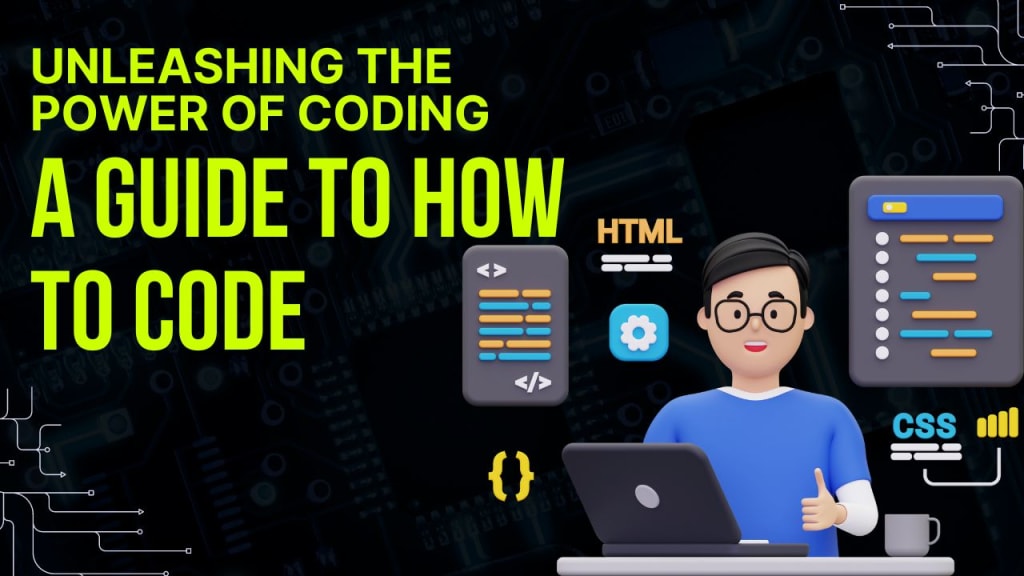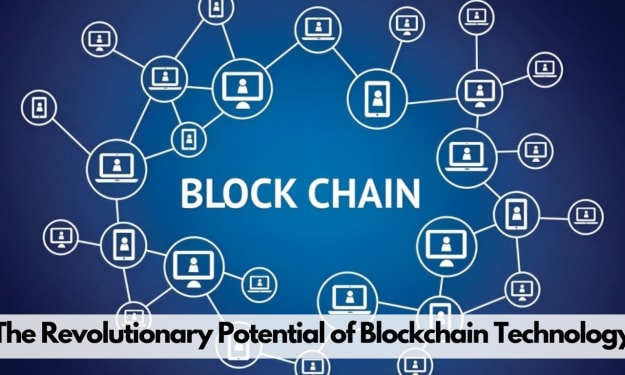Unleashing the Power of Coding: A Guide to How to Code
This article aims to provide you with valuable insights, essential resources, and step-by-step instructions to guide you on how to code.

In today's digital age, the ability to code has become more vital than ever. Whether you dream of becoming a software developer, a data scientist, or simply desire a deeper understanding of the technology that surrounds us, learning how to code opens up a world of possibilities. This article aims to provide you with valuable insights, essential resources, and step-by-step instructions to guide you on how to code. Get ready to embark on an exciting adventure into the realm of programming.
Understanding the Fundamentals of Coding
Before diving into the world of coding, it's crucial to grasp its fundamental concepts. Coding involves writing sets of instructions, commonly known as code, that computers can comprehend and execute. It empowers you to build applications, websites, games, and more. Regardless of the programming language you choose, whether it's Python, Java, JavaScript, or any other, the core principles remain the same. By learning how to think algorithmically and break down complex problems into manageable steps, you lay the foundation for becoming a proficient coder.
Selecting the Ideal Programming Language
The vast array of programming languages available can be overwhelming. Each language possesses its own strengths and weaknesses, making it suitable for specific domains or applications. Whether you're attracted to the simplicity of Python, the versatility of JavaScript, or the power of C++, it's crucial to align your choice with your goals and interests. Consider factors such as community support, learning resources, job market demand, and the problem domains you wish to explore.
Setting Up Your Development Environment
To start coding, you need to establish a development environment that includes an integrated development environment (IDE), a text editor, or a command-line interface. IDEs provide a suite of tools and features to facilitate the coding process, including syntax highlighting, code completion, and debugging capabilities. Popular IDEs include Visual Studio Code, PyCharm, and Eclipse. Alternatively, you can opt for a lightweight text editor like Sublime Text or Atom. Regardless of your choice, ensure that your environment supports the programming language you've selected.
Exploring Key Programming Concepts
To become proficient in coding, you must grasp essential programming concepts. Variables, data types, and operators allow you to store and manipulate data, while conditional statements and loops control the flow of your code. Functions enable code reuse, while classes and objects facilitate object-oriented programming. Understanding these concepts and their interactions forms the basis of writing clean, efficient, and maintainable code.
Implementing Control Structures and Loops
Control structures and loops provide you with the tools to make your code dynamic and responsive. Conditional statements, such as if-else and switch-case, enable you to execute specific blocks of code based on certain conditions. Loops, including for, while, and do-while, allow you to repeat a set of instructions multiple times, iterating over data structures or performing continuous operations.
Working with Functions and Modules
Functions are the building blocks of modular and reusable code. By defining functions, you encapsulate specific sets of instructions into a single entity that can be called whenever needed. This promotes code organization, improves readability, and enhances code maintainability. Furthermore, utilizing modules allows you to import and use pre-built code libraries, extending the capabilities of your programs.
Managing Data Structures and Algorithms
Data structures and algorithms are crucial for efficient and optimized programming. Arrays, lists, stacks, queues, and dictionaries enable you to store and manipulate data in different ways, depending on your requirements. Algorithms provide step-by-step procedures for solving specific problems, such as searching, sorting, and graph traversal. Understanding data structures and algorithms empowers you to write code that performs well and scales effectively.
Debugging and Troubleshooting Techniques
Debugging is an essential skill for every coder. Regardless of your proficiency level, encountering errors and bugs is inevitable. Learning how to effectively debug your code, using tools like breakpoints and print statements, helps you identify and resolve issues quickly. Additionally, mastering troubleshooting techniques allows you to diagnose and fix errors in your development environment and dependencies.
Utilizing Version Control Systems
Version control systems, such as Git, are indispensable tools for managing code repositories and collaboration. They enable you to track changes, revert to previous versions, and collaborate seamlessly with others. By learning how to use version control systems effectively, you ensure the integrity of your codebase, facilitate teamwork, and enable efficient project management.
Embracing Best Practices and Design Patterns
Coding goes beyond writing functional code—it's about writing high-quality and maintainable code. Embracing best practices, such as using meaningful variable names, writing modular code, and documenting your work, enhances code readability and promotes collaboration. Additionally, familiarizing yourself with common design patterns allows you to apply proven solutions to recurring problems, improving code structure and maintainability.
Exploring Advanced Topics in Coding
Once you've mastered the fundamentals, you can delve into more advanced topics in coding. These may include concepts like multithreading, network programming, database management, security, and more. Depending on your interests and career aspirations, diving deeper into these areas broadens your skill set and equips you with the knowledge to tackle complex coding challenges.
Venturing into Web Development
Web development is a vast field that encompasses both front-end and back-end development. Front-end development focuses on building user interfaces using HTML, CSS, and JavaScript. Back-end development involves creating server-side applications using frameworks like Node.js, Django, or Ruby on Rails. Learning web development opens up opportunities to create interactive websites and web applications, connecting with users worldwide.
Building Mobile Applications
In today's mobile-centric world, developing mobile applications is in high demand. Platforms like Android and iOS offer robust frameworks and development tools to build native apps. Alternatively, frameworks like React Native and Flutter allow you to develop cross-platform applications using a single codebase. By acquiring mobile app development skills, you can bring your ideas to life and reach a vast audience through smartphones and tablets.
Exploring Data Science and Machine Learning
Data science and machine learning are revolutionizing various industries, from healthcare to finance and beyond. These fields involve analyzing and interpreting large datasets to extract valuable insights and make informed decisions. Programming languages like Python and libraries such as NumPy, Pandas, and TensorFlow are widely used in data science and machine learning. By delving into these domains, you can leverage the power of data to drive innovation and solve complex problems.
Contributing to Open Source Projects
Open-source projects provide a fantastic opportunity to collaborate with developers worldwide and contribute to the software community. By participating in open-source projects, you can gain hands-on experience, sharpen your coding skills, and make meaningful contributions to impactful projects. It's a chance to learn from experienced developers, receive feedback on your code, and establish a professional network.
Conclusion
Congratulations on embarking on this thrilling journey of learning how to code. Throughout this article, we have explored the essential aspects of coding, from understanding the basics to venturing into advanced domains. Remember, coding is a continuous learning process that requires dedication, practice, and curiosity. Embrace the challenges, persevere through the obstacles, and let your passion for coding guide you to new heights of innovation and creativity.
About the Creator
digitalranger
Digital Ranger is a Professional Technology Platform. we provide you with only interesting content. We're resolute in giving you the best of Technology, with a focus on dependability and Technology.
website: https://digitalranger.in






Comments
There are no comments for this story
Be the first to respond and start the conversation.